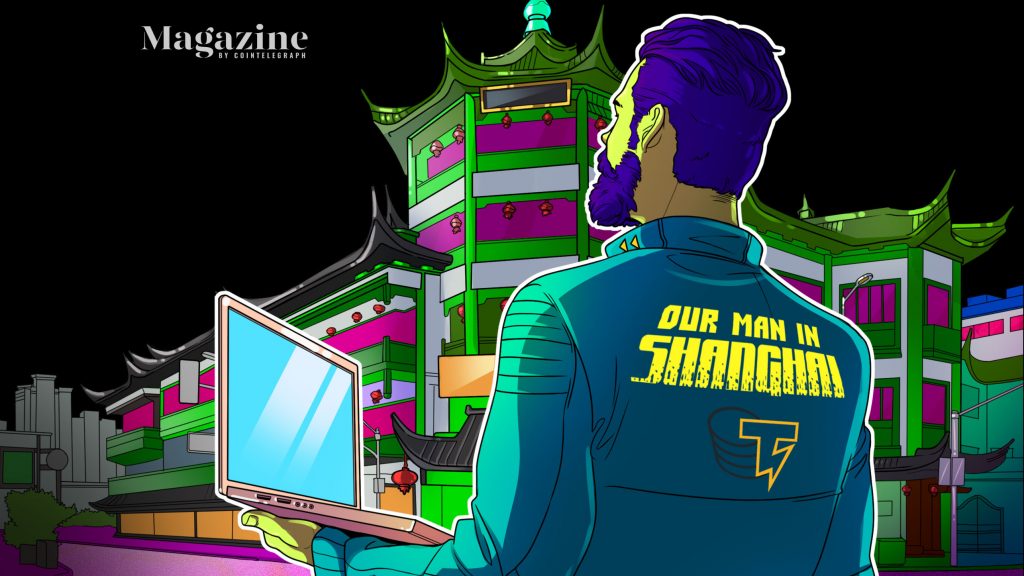US senators tell athletes to avoid digital yuan, Chinese exchange volumes rebound … and more – Cointelegraph Magazine

This weekly roundup of news from Mainland China, Taiwan, and Hong Kong attempts to curate the industry’s most important news, including influential projects, changes in the regulatory landscape, and enterprise blockchain integrations.
Olympic battle
After months of writing about the relentless actions of the Chinese government, this week we lead with a story from the US Government. On July 19, three US senators signed a letter addressed to the to U.S. Olympic and Paralympic Committee, requesting US athletes not use the e-CNY in February’s Winter Olympic games in Beijing. The logic was that the digital currency would be traceable after the athletes returned to the US, in case China was interested in tracking foreign bi-athletes and bobsledders in their offseason training regiments.
China’s Foreign Ministry spokesperson Zhao Lijian snapped back that the senators “should stop making troubles” and “figure out what a digital currency really is.” Zhao apparently believes that the US lawmakers might not be up-to-date on the latest in technology, something the crypto-enthusiasts on Twitter have been bemoaning for years.
All sarcasm aside, this points to a growing trend of consumers being caught in geo-political struggles around technology, which could become a much larger issue as CBDCs become more prevalent. Users can choose to avoid certain hardware or apps that provide a data security risk, but avoiding the local currency will be a much more difficult choice to make. Cash use has dropped to a negligible amount in China, with the bulk of daily transactions being digital through Alipay and WeChat. Traveling or living in China without touching the digital currency will be a huge inconvenience, and one likely to not go over well with future generations.
Leading the pack
On July 19, Cointelegraph reported that Chinese Bitcoin miners had earned close to $7 billion dollars in the past year, ten times higher than miners in the second highest country, the US. This trend might be broken up slightly by the regulatory crackdown this year, but still shows the influence China has on the industry, especially if large Chinese companies can continue to set up operations in neighboring countries.
Chinese volumes bounce back
Volumes on Chinese exchanges Huobi and OKEx rebounded slightly compared to the same time last week, including on the derivatives side where the two exchanges made up around 44% of Binance’s volume, compared to only 38.7% at the same time the week before. Gaming token Axie Infinity remained a hot token for trading, and was the fourth-most traded token on Huobi on Thursday behind BTC, ETH, and DOGE. Actual gameplay hasn’t really taken off in China, and even though the site remains unblocked by the Great Firewall thus far, visits to the website are still scarce. Users from the Philippines make up 40% of website visitors, whereas China accounted for less than 3%. China boasts the largest gaming community in the world, but tight restrictions on cryptocurrencies is likely to limit the growth of public blockchain-based gaming for the time being. Speculating on gaming-related tokens, however, will likely remain a strong trend.
It’s worth noting that in the short term, the regulations looming on the horizon makes betting on exchanges a risky proposition. Many rumors have swirled about upcoming action to be taken by Chinese regulators, particularly for repeat offenders in the area. Regulators in smaller countries seem to be waiting to see who will throw the first punch.
Non-fungible fossils
Hong Kong’s most prominent newspaper South China Morning Post is launching an NFT platform aimed at historical news and items. This platform will let verified issuers mint and trade NFTs in an open marketplace. This should appeal to a broader audience of collectors and non-crypto native users in Southeast Asia, as well as a government interested in exporting soft power to the world.













